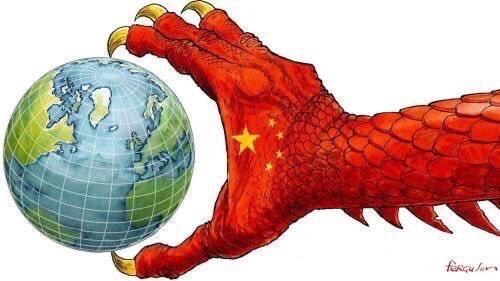The China Threat
FABRIZIO GOWDY | SEPTEMBER 21, 2020 | OPINIONS
Retrieved from google images
“What is the most important issue in the 2020 election?” With less than 50 days until Nov. 3, that is the question pollsters have been asking Americans. In an August 2020 Gallup survey, less than one percent of respondents named China as the most important problem facing the country. This alarming lack of concern is representative of American ignorance on foreign policy issues.
An ambitious and ascendant People’s “Republic” of China is undoubtedly the greatest issue facing our country and will be for years to come. With much of the West reeling from the impact of coronavirus, an emboldened Chinese Communist Party (CCP) sees an opportunity to expand its already increasing influence abroad and tighten its authoritarian grip on domestic affairs.
Make no mistake: China has both the capability and intent of replacing the United States as the world’s preeminent superpower. The Chinese have several advantages — an educated population four times larger than ours, a strong manufacturing base and a rapidly growing economy, and a centrally controlled government headed by a competent leader, President Xi Jinping. Unlike the United States, China thinks ahead, far ahead. In it for the long game, the CCP draws up comprehensive 30, 40, and 50-year plans, whereas our government rarely thinks four years ahead thanks to our perpetual election cycle. If nothing changes, China’s overtaking of the United States will not be a matter of if but when.
In the coming weeks, this column will focus on the different spheres in which China is challenging American interests and ideals. On the economic front, it has launched the trillion dollar Belt and Road Initiative and Made in China 2025, plans to bolster Chinese manufacturing and reorient trade and the global economy around itself. On the military front, China is outpacing the United States in artificial intelligence and satellite and missile technology, and it has undermined our aging, expensive defense systems with its own newer, cheaper, and more efficient weapons systems. And on the cultural front, China seeks to undermine the values of liberal western democracy and threatens to export its culture of brutal religious intolerance, authoritarian communism, and suppression of basic freedoms to the rest of the globe.
Unsurprisingly, China has become a top-priority foreign policy focus of the Trump administration; a recent string of high-profile speeches from ranking administration officials is indicative of the immense threat China poses. On June 23, at the Richard Nixon Presidential Library, Secretary of State Mike Pompeo slammed China for its unwillingness to follow international precedents and its unfair trade practices. In a July 7 speech at the Hudson Institute, FBI Director Christopher Wray charged China with mass state-sponsored intellectual property theft. Intellectual property theft was cited as the reason for the recent closure of the Chinese consulate in Houston, which the State Department accused of being a “hotbed of spies.” And at the Gerald Ford Presidential Library on July 16, Attorney General Bill Barr called the global ambitions of the CCP the “important issue for our nation and the world in the twenty-first century.
Some, like Missouri Senator Josh Hawley, a vocal critic of China, say we have entered a new era of “great power competition.” Regardless of what we call it, the fact is China is easily the greatest geopolitical challenge we have faced since the Cold War. We need to shift our focus away from Russia, a shadow of the USSR which has essentially become a well-armed but dying petrostate with a faltering economy, and towards China, an ascendant power and a new evil empire. Inspired by the legacy of ancient China’s greatness, the country’s youngest citizens are working hard to return their nation to its prior glory. The task of countering China’s rise and maintaining our nation’s position as the world’s foremost military and economic power will fall upon our generation, and to succeed in this task, we must first fully understand the scope and nature of the threat China poses.
